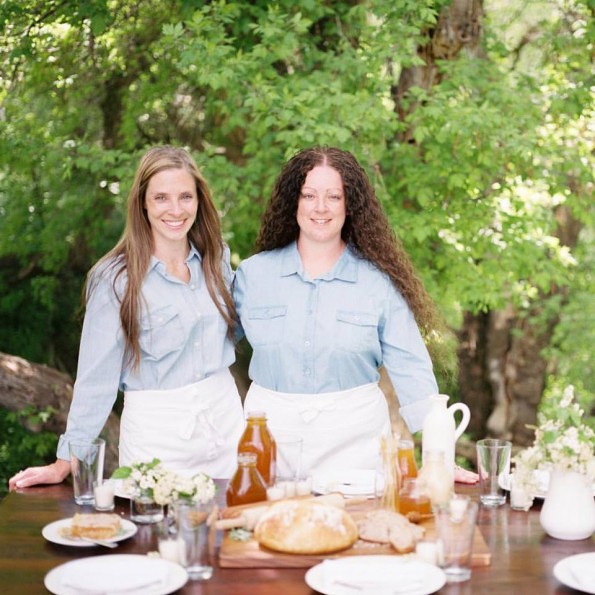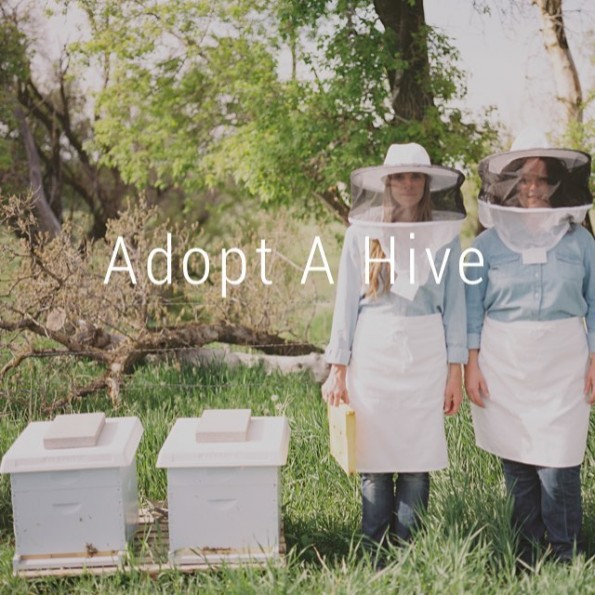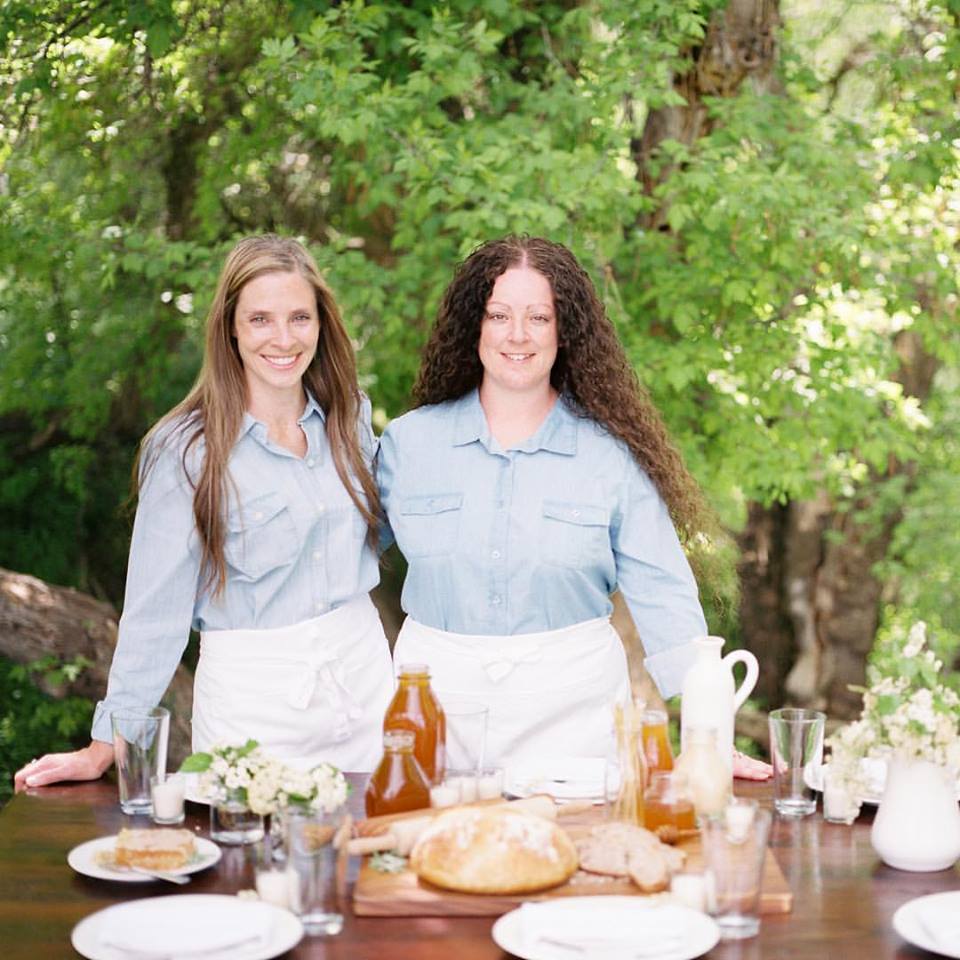
Queen Farina founders Aubrey Johnson and Gina Nielson want to take care of you. How? With honey.
Queen Farina’s all-natural products, including raw honey, lip balm, mustache wax, and more, are a direct reflection of this philosophy. “A lot of the stuff on supermarket shelves is not technically honey,” explains Aubrey. “We choose not to pasteurize because raw honey is an excellent source of nutrients, enzymes, and pollen that help our bodies.”
Aubrey and Gina didn’t always know this much about bees. They acquired their first two honeybee hives, one for each of their families, 2013. “We thought it would be a fun way to teach our children about bees together, “ says Aubrey. One year later, the sisters posted a picture of the results of their first honey harvest–120 pounds– to Facebook. “We were shocked at the the overwhelming response we received from our friends,“ says Aubrey. “I think each of our families only ended up with one pound each after we filled all the purchase requests!”
Before the second harvest, Aubrey and Gina acquired eight more hives, but the number of requests for honey continued to grow. By 2014, the sisters realized they had a steady demand, and inspired by their late father, a lifelong entrepreneur, they built a business from it. Located in Cache County, they currently care for 40 honeybee hives, each contained in a bee box with its queen bee’s name printed on the front. “Our business itself is like a hive, and when we asked ourselves who our queen bee was, our mother was a clear choice,” Aubrey says. “Farina is her maiden name.”
With three nursing degrees and two veterinary science degrees between them, these sisters clearly share a desire to help those who cannot help themselves. It should therefore come as no surprise that Queen Farina is working to improve the lives of not only its customers but its product manufacturers: the honeybees themselves.
“What we are doing is so small compared to the huge obstacles the honeybee is facing in the fight for survival, but a main part of our mission is to spread the word about all honeybees do for us, so more people will get involved,” says Aubrey. “The more people who are involved, the bigger the difference we can make.”
Adopt a hive through Queen Farina’s Bees Kneeds program, and you’ll have name rights to the queen bee of a brand new hive, plus Aubrey and Gina will provide pictures of your “girls,” as well as send you a full frame of honey at harvest time.
Visit www.queenfarina.com or find them on Instagram @queenfarina or Twitter @QueenFarinaHny to get involved.






